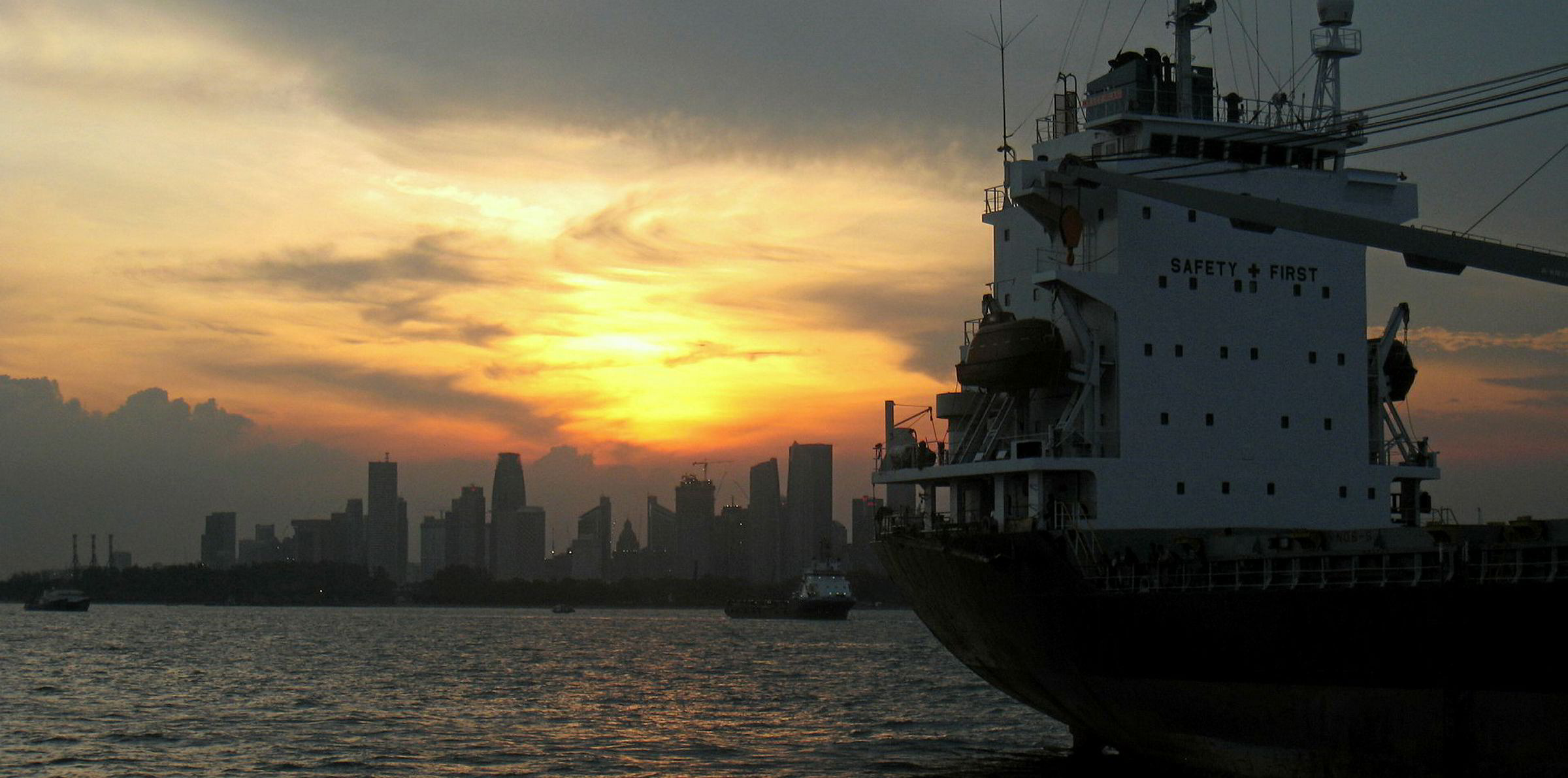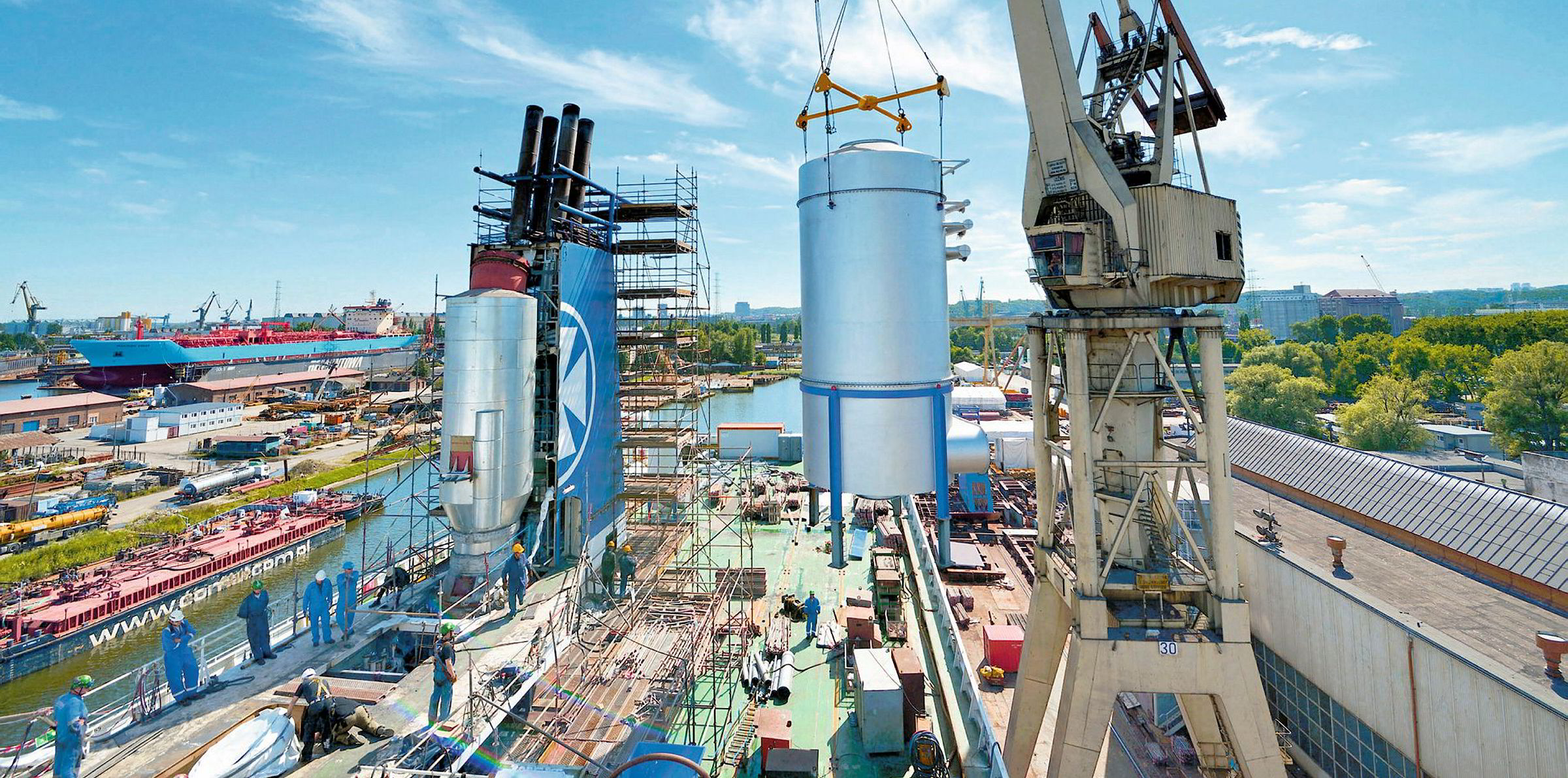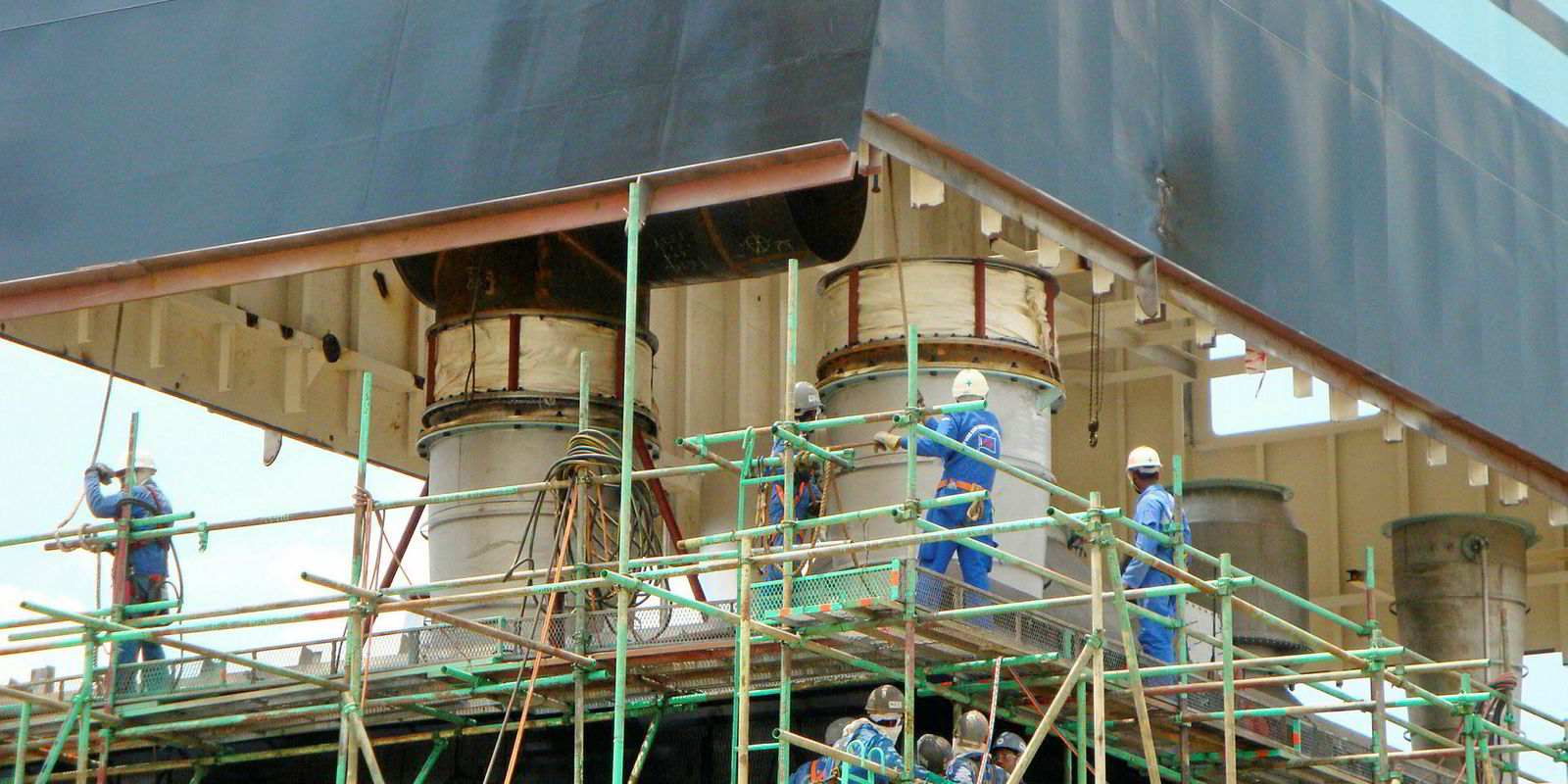Singapore and Hong Kong are well known for taking an aggressive stand against anyone who breaks the rules.
Singapore’s tourist shops have even gone so far as to print T-shirts describing it as a “fine city”, while listing all the penalties facing miscreants who dare to bring the notoriously noxious durian fruit onto public transport or forget to flush a public toilet.
So when Singapore and Hong Kong say they will vigorously enforce the IMO’s sulphur cap regulations come 1 January, the shipping industry had better take note.
Taking it seriously
The Maritime and Port Authority of Singapore (MPA) and the Hong Kong Marine Department (Mardep), the government entities charged with enforcing IMO policies, make it clear in written responses to enquiries from TradeWinds that they will take IMO 2020 very seriously.
Miscreants will face tough penalties.
In Hong Kong, use of non-compliant fuel oil will be liable to a maximum penalty of HKD 100,000 ($12,750).
Singapore’s penalty will be SGD 10,000 ($7,400), the same figure it sets for violation of any other Marpol Annex VI rule. The MPA warns that the owners and the master of the ship could also be imprisoned for up to two years for non-compliance with these regulations.
Regular regimes
Both authorities indicate that enforcement of the IMO 2020 rules will be carried out as part of regular flag state and port state control inspection regimes.
“Ships that fail to use an approved abatement technology, alternative fuel or compliant fuel will be considered as non-compliant with the IMO 2020 regulations,” the MPA warns.
“In addition, the MPA will also prohibit the discharge of wash water from open-loop scrubbers by ships in the Port of Singapore, to maintain Singapore’s marine water-quality standard.”
Information supplied by Mardep indicates that the same will apply for all ships calling in Hong Kong.
The MPA and Mardep will conduct fuel-compliance checks through random sampling of the bunkers onboard vessels to make sure the fuel is IMO-compliant. Neither organisation mentioned any plans to test the sulphur content of engine emissions.
Mardep assures TradeWinds it has sufficient capacity and manpower to carry out all required IMO 2020 compliance functions, including fuel oil checks and laboratory tests.
Electronic system
The MPA says it will engage fuel-testing companies for detailed laboratory analysis of fuel oil samples. In addition, it will update its electronic pre-arrival notification system for ships to declare their method of compliance before they arrive in Singapore.
The MPA stresses that it is also working closely with the shipping industry to ease the transition. It will establish training and familiarisation plans, and, in conjunction with the Singapore Shipping Association, has made available technical guides on its website outlining options available for ship operators to comply with the new regime.





